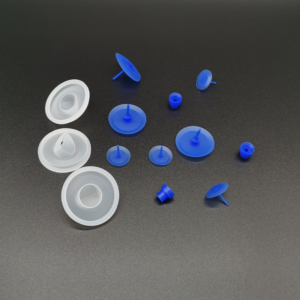Before we dive into today’s topic, let’s take a moment to explore the world of rubber valve cover gaskets. You may have heard of them, but do you really know what they are and why they are important?
The valve cover rubber gasket is an important part of the engine valve cover assembly. They are designed to create a tight seal between the valve cover and cylinder head, preventing oil leaks and ensuring the engine runs at peak performance. These gaskets are typically made from high-quality rubber or silicone materials, which are known for their durability and resistance to heat and pressure.
Now, you may be wondering why these seemingly small and simple washers are so important. Well, the answer lies in their functionality. Valve cover gaskets play a vital role in maintaining proper lubrication and sealing of your engine. Without them, oil can leak from the engine, causing potential damage and reduced performance.
![]() In addition to preventing oil leaks, rubber valve cover gaskets also help prevent dust, debris, and other contaminants from entering the engine. This is critical to ensuring the longevity and efficiency of your engine, as any foreign particles that enter the engine can cause serious damage over time.
In addition to preventing oil leaks, rubber valve cover gaskets also help prevent dust, debris, and other contaminants from entering the engine. This is critical to ensuring the longevity and efficiency of your engine, as any foreign particles that enter the engine can cause serious damage over time.
In addition, these gaskets must withstand extreme conditions within the engine, including high temperatures and pressures. Therefore, they need to be made of high-quality materials that can withstand such conditions without deteriorating. That’s why investing in a quality rubber valve cover gasket is critical to your engine’s overall health and performance.
Silicone and rubber valve cover seals present ease of replacement and enhanced durability, crucial for preventing leaks. These materials are adept at creating a robust seal, ensuring effective functionality. Notably, rubber valve covers absorb leaked oil, offering an additional layer of protection.
During replacement, a new valve cover gasket is installed above the fresh rubber sleeve, securing screws and heads in place. It’s essential to note that reusing valve covers is not recommended, and investing in replacements contributes to their overall efficacy. For a comprehensive overview of various valve types and seals available in the market, refer to this resource for a list of popular and premium options.
 When a mechanic conducts a valve cover replacement, they often replace the spark plug pipe gasket and ensure a seamless gasket surface by adding a segment. Proper reinstallation of components removed for valve cover access is crucial to maintain the integrity of the seal.
When a mechanic conducts a valve cover replacement, they often replace the spark plug pipe gasket and ensure a seamless gasket surface by adding a segment. Proper reinstallation of components removed for valve cover access is crucial to maintain the integrity of the seal.
Post-reinstallation, the rubber gasket is removed from the lid, and a new one is installed in the rear groove. To guarantee a proper fit, all silicone joints should be cleaned with a brake cleaner and razor blade. In cases where the cover adheres to the camshaft seal, a thin layer of silicone from a basket maker gasket can be applied to prevent sticking.
A high-quality valve cover seal plays a pivotal role in preventing oil from entering the engine cylinder head, mitigating the risk of leaks. In instances where rubber valve covers and seals exhibit seepage near the camshaft seal, applying a thin layer of silicone can be a helpful trick.
It’s crucial to address oil leakage promptly, as it indicates a problem with the valve cover seal. Opting for high-quality rubber valve covers and seals ensures optimal performance, preventing oil from entering the engine’s cylinder head.
In conclusion, the valve cover seal is instrumental in sealing engine oil and minimizing the possibility of leaks. The choice of materials, such as silicone or rubber, significantly impacts the effectiveness of valve cover gaskets. While cork and other materials are available, rubber remains a popular and reliable choice for modern cars in today’s market. Regular inspection and timely replacement of valve cover gaskets contribute to the overall health and performance of the engine.
![]() Yes,rubber valve cover gaskets may look like small parts, but their role in maintaining engine integrity and performance is very important. These gaskets create a tight seal, prevent oil leaks and keep contaminants out, and are critical to the smooth operation of any vehicle. So the next time you pop the hood of your car, take a moment to understand the importance of these often overlooked components.
Yes,rubber valve cover gaskets may look like small parts, but their role in maintaining engine integrity and performance is very important. These gaskets create a tight seal, prevent oil leaks and keep contaminants out, and are critical to the smooth operation of any vehicle. So the next time you pop the hood of your car, take a moment to understand the importance of these often overlooked components.
Do you really admire rubber valve cover gaskets now? Isn’t it magical? If you have any other questions, please leave a message and we will respond as soon as possible. See you soon.